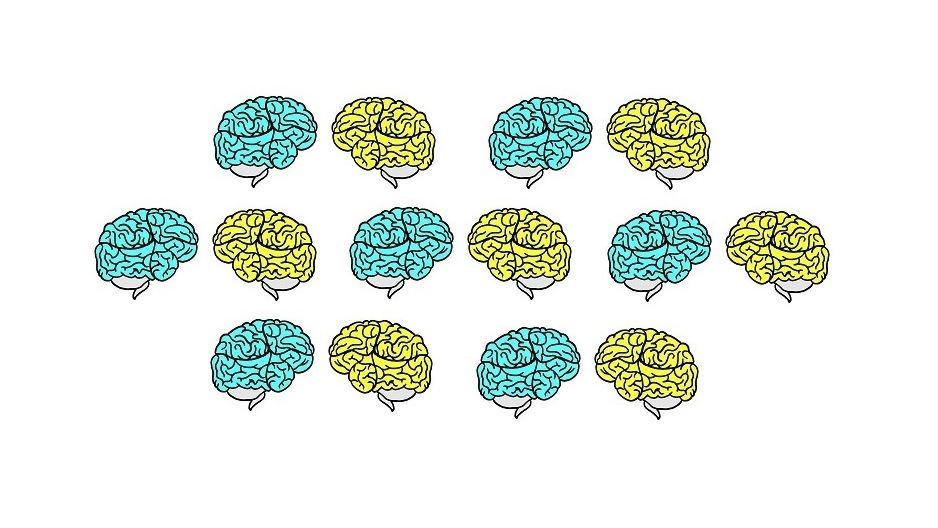Your guide to self-care on campus: 2023 edition
Find ways to thrive with Temple’s mental health resources.

Updated Nov. 27, 2023
How are we feeling, Owls? As you navigate classes, extracurriculars, relationships and other responsibilities, it’s important to make time for you. Did you know that Temple now has a Health and Well-being Division to support your journey? The division takes a holistic approach to mental, physical and social wellness, bringing together the Wellness Resource Center, Tuttleman Counseling Services and Student Health Services. Be sure to get acquainted with these well-being resources on campus to help you thrive.
Your first stop should be the Wellness Resource Center (WRC). Their team of experienced professionals and wellness peer educators are dedicated to helping you find balance, calm and community. It’s important to note that the team does not offer counseling or psychological services. Instead, they focus on education and opportunities to learn new skills and information.
Take this online mental health screening to help determine if you should connect with a mental health professional. If you decide that you need more support, don’t hesitate to reach out to Tuttleman Counseling Services to access counseling and psychological services. If you’re not sure what’s best for you, definitely start with WRC. They can listen and refer you to the resource that will be most helpful. Tuttleman Counseling Services has also contracted with WellTrack Boost and Togetherall to provide free digital well-being resources to Temple University students.
Keep reading to see all the great events, opportunities and services available to you.
Wellness Resource Center
WRC programs are available virtually and on campus through the academic year. Explore ways to manage stress, create a caring campus community and strengthen your skills in supporting friends and peers. These are just a few of the topics you can check out through WRC programming. You can stop by the office for print resources or free safer sex supplies.
Get Involved and Promote Well-being
By getting more involved with the WRC and its work, you’ll be able to connect fellow students with the resources, information and skills to help us all thrive. The WRC makes that easy through the wellness peer educator program.
Wellness peer educators lead crucial conversations on campus, and the confidence and experience you will gain in public speaking, community organizing, and event and program planning is the cherry on top. Once you become a peer educator, you can apply for paid positions within the WRC as well. Learn more about the steps of becoming a certified peer educator.
Tuttleman Counseling Services
Tuttleman Counseling Services (TCS) offers mental health support to all currently enrolled Temple undergraduate, graduate and professional school students. An informal yet professional atmosphere provides students with a safe space to seek help. Assistance is confidential and free of charge. Initial counseling appointments for students are available within 24–48 hours of the initial request.
TCS offers the following services.
Resiliency Resource Center
This center provides resources for those new to TCS and for students in therapy who’d like to build on the skills they’ve learned. These resources include online materials, workbooks, meditation and relaxation exercises, biofeedback, and bright light therapy, among others. Undergraduate psychology interns are there to assist you.
Groups and Skills Classes
Every semester, TCS offers various therapy groups and skills classes. Group therapy is an effective treatment for many mental health concerns, including depression, generalized and social anxiety, post-traumatic stress, and other conditions. Therapy groups provide social support and opportunities to practice coping skills in contexts more closely resembling everyday life situations.
Skills classes teach psychological tools such as mindfulness, grounding, time management, boundary-setting and others to alleviate a range of common mental health concerns. These classes meet via Zoom in four- and six-week formats, and you can join any week of the semester..
Individual Counseling
Individual counseling is beneficial for a host of reasons. Work cooperatively with a Tuttleman counselor to address your concern and create realistic goals for feeling better. Students generally have biweekly visits, but you can be seen more or less based on your needs.
Don’t worry, confidentiality is paramount at Tuttleman. No one outside of TCS counselors would have access to your counseling records without your written permission.
Psychiatric Services
These services include psychiatric evaluations, medication consultations and short-term individual psychotherapy. To access psychiatric services, you must first complete an initial assessment and meet with a clinician. These services are offered through appointment only.
Referrals
If you feel more comfortable receiving counseling off campus or need specialized services not offered by TCS, you can request a referral.
Let’s Talk
This drop-in service allows you to have informal consultations with a counselor, who will offer guidance and suggest resources. Counselors hold walk-in hours at several sites on campus every week, and appointments are first-come, first-served. Learn more about Let’s Talk and how to access this resource.
Online resources
Togetherall is a safe and anonymous online peer community addressing your mental health. Get free support in minutes by sharing how you feel, finding courses to learn coping techniques, and accessing resources such as self-assessments and articles to understand your situation and track your progress. Registered mental health professionals are available 24 hours a day to keep the online community safe. As a Temple student, you can create a free account here.
Welltrack is a self-help resource to manage depression and anxiety with structured sessions, relaxation exercises, simulated situations to handle particular concerns (e.g., public speaking) and a “Zen Room” for meditation. Additionally, its wellness assessment helps you understand how your everyday activities affect how you feel. You can download the Welltrack app here.